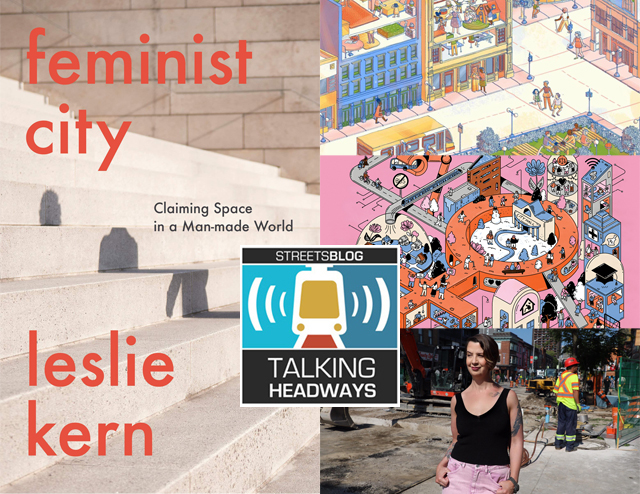This week we’re joined by Professor Leslie Kern to talk about her book Feminist City and the need to make more spaces for non-traditional relationships, feminist geography and intersectionality. We touch on major topics for transforming our society for the better, including the connection between care work and personal transportation, how urban design itself can impact our friendships and how cities hold the key for creating an entirely better way to live in America.
If you prefer to read, an edited transcript is below the player. For a full unedited transcript (with typos) click here.
Jeff Wood: Let's talk about the importance of friendships, which you discuss in the book pretty wonderfully. I’m wondering how much friendship plays into the space of cities?
Leslie Kern: Not enough, I would say. And I think this is maybe something that people have recognized a little bit more during the pandemic when many of us have been cut off at least periodically and kind of repeatedly from our friendships, as we’ve been told to stay in household bubbles. And without some of those spaces that we take for granted where friendship can happen, many people have been left, really feeling the lack of those relationships. There are ways that cities could encourage or facilitate, or even just value the bonds of friendship or other kinds of non-nuclear family relationships a bit more, whether that’s thinking of alternative modes of housing, whether that’s a greater public space where we can actually sit and socialize without having to, you know, go into a cafe or a restaurant and buy something expensive as our kind of mode of socializing.
But on the other hand, you know, cities are, you know, exciting places for the development of friendships and all other sorts of relationships. They’re perhaps not as dedicated to confining people to the limits of the traditional nuclear family. There is more space for alternative ways of being in cohabitating and setting up the life that you want.
Jeff Wood: What would that look like? Friendship. We use this term "infrastructure" a lot lately, obviously because there’s a massive conversation about it going on, but what would like friendship infrastructure look like in a city?
Leslie Kern: You know, the space of the home is a key example in most cities in North America, the primary form of housing that we build is dedicated to the nuclear family and the small nuclear family. So the space itself is sort of designed around a particular family form, but also all of our policies around property ownership, tax benefits and other layers that kind of go together to funnel us towards a certain way of living. And there isn’t a lot of space, or it takes a lot of effort to do something differently within those constraints.
So, it is really key for us to can imagine — and certainly this does exist in many places — other forms of housing, where there are more flexible configurations of what the home itself looks like, where there are more shared spaces like communal kitchens, laundries, gardens, courtyards, things that bring people together and outside of the private space of the home. I also think there is room to really rethink what our public spaces are like. I know in so many cities, we have such a fear of crime, a fear of homeless people, a fear of terrorism that we’ve ripped out so much social infrastructure: benches, places to have shelter and shade, to, you know, sit and relax — it's something many people notice during the pandemic that it’s hard to get out and socialize even as our governments were telling us to do so outside. So can we create configurations in public space that encourage people to gather right now, I would say many of our cities actively tried to do the opposite.






